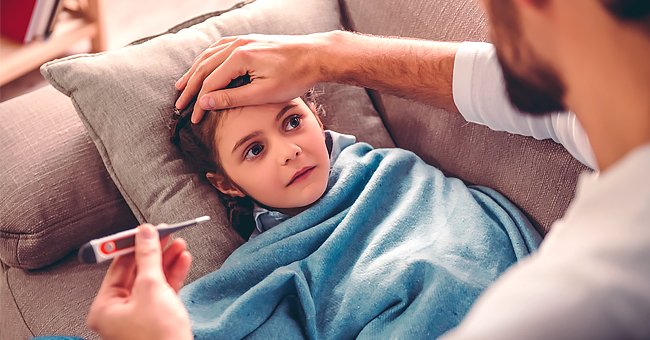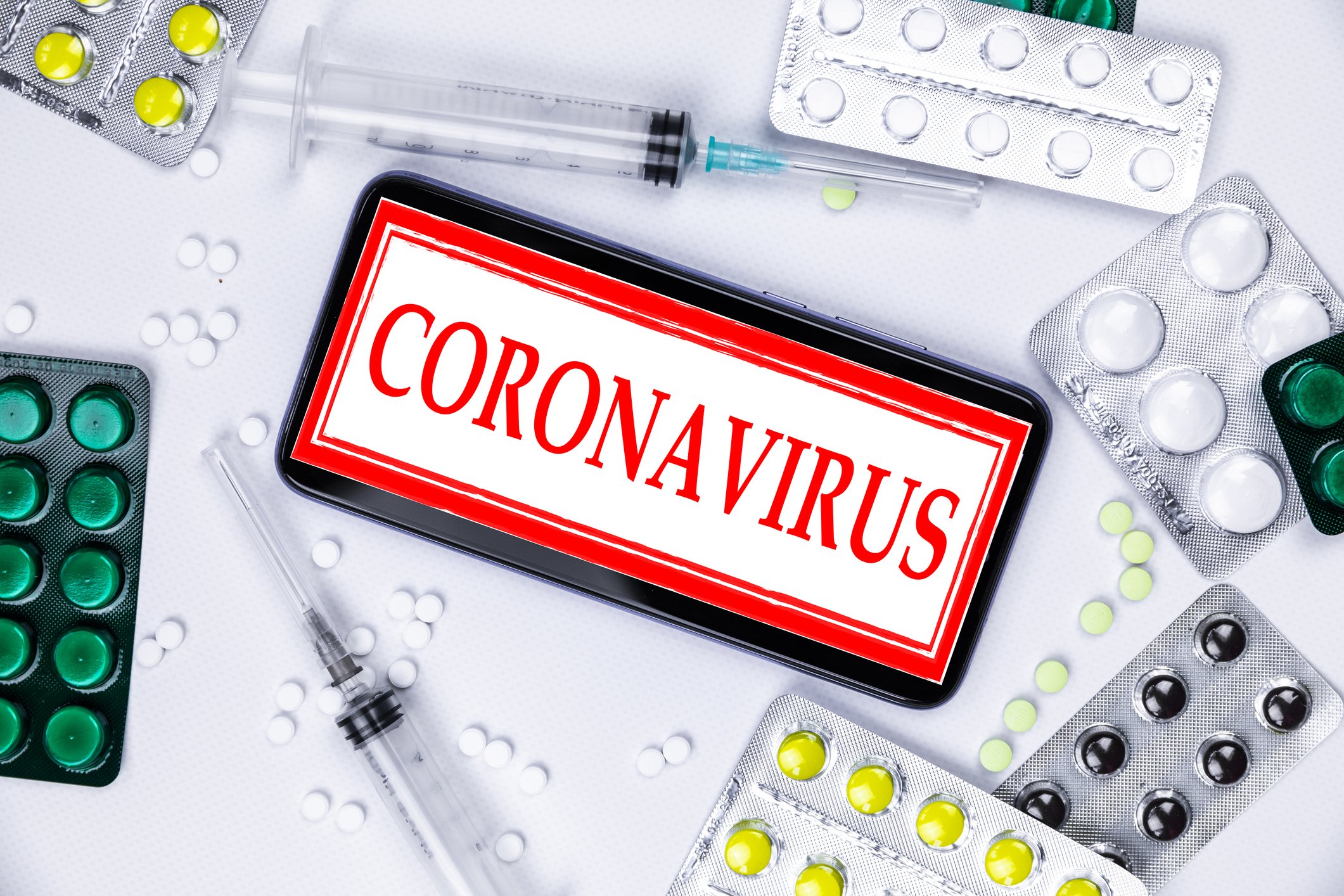
10-Year-Old British Girl Reportedly Tests Positive for Coronavirus after Family Thought She Had Tonsillitis
A young schoolgirl in Plymouth who tested positive for Coronavirus was thought to have a different ailment, and her symptoms were different from those associated with the virus.
While the world is still trying to understand the deadly Coronavirus, a 10-year-old schoolgirl showed different symptoms. According to the news outlet, Plymouth Live, the unnamed youngster tested positive for Coronavirus.
At first, the child's parents thought she had tonsillitis because her symptoms did not hint at the virus. The young girl had a high temperature of 41.6 C that led to convulsions.

Smartphone with logo with pills and vaccine. Novel coronavirus 2019-nCoV | Photo: Getty Images
There was no sign of a persistent cough, but the girl had ulcers in her throat. Her other symptoms include red, molted skin, severe pain in her legs, and aches all over her body.
A test on the youngster showed that she has Coronavirus, and her parents took action immediately. The girl is getting treated by her parents with paracetamol, as antibiotics did not work on her.
The news outlet noted that the child seems to be recovering. She is no longer lying in bed and has started sitting up and moving for a short period.
Schools in the Plymouth area have advised parents to take extra care of their children and keep them safe. School administrators want every child monitored for symptoms and kept within the confines of their homes.
Avoid touching the face as the virus spreads through saliva droplets.
The Coronavirus has affected a lot of age groups in the United Kingdom. Some, who have contracted the potentially fatal virus did not show the usual symptoms.
The World Health Organization has listed the symptoms of the virus to include mild to moderate respiratory illness. A dry, persistent cough is also a symptom, as well as cold.
Older people with underlying medical issues like cardiovascular disease, diabetes, and chronic respiratory disease are prone to contract the virus. A cancer patient is also among those easily affected.
WHO notes that the best way to prevent the spread of the virus is by staying informed. The organization advises that people continuously wash their hands and use alcohol-based sanitizers.
Avoid touching the face as the virus spreads through saliva droplets or discharge from the nose of an infected person via coughing or sneezing. WHO also encourages respiratory etiquette like coughing into a curved elbow.
There is currently no vaccine or treatment for the virus. However, people have recovered from Coronavirus without any special treatment, and hopefully, the young girl will be one of them.
